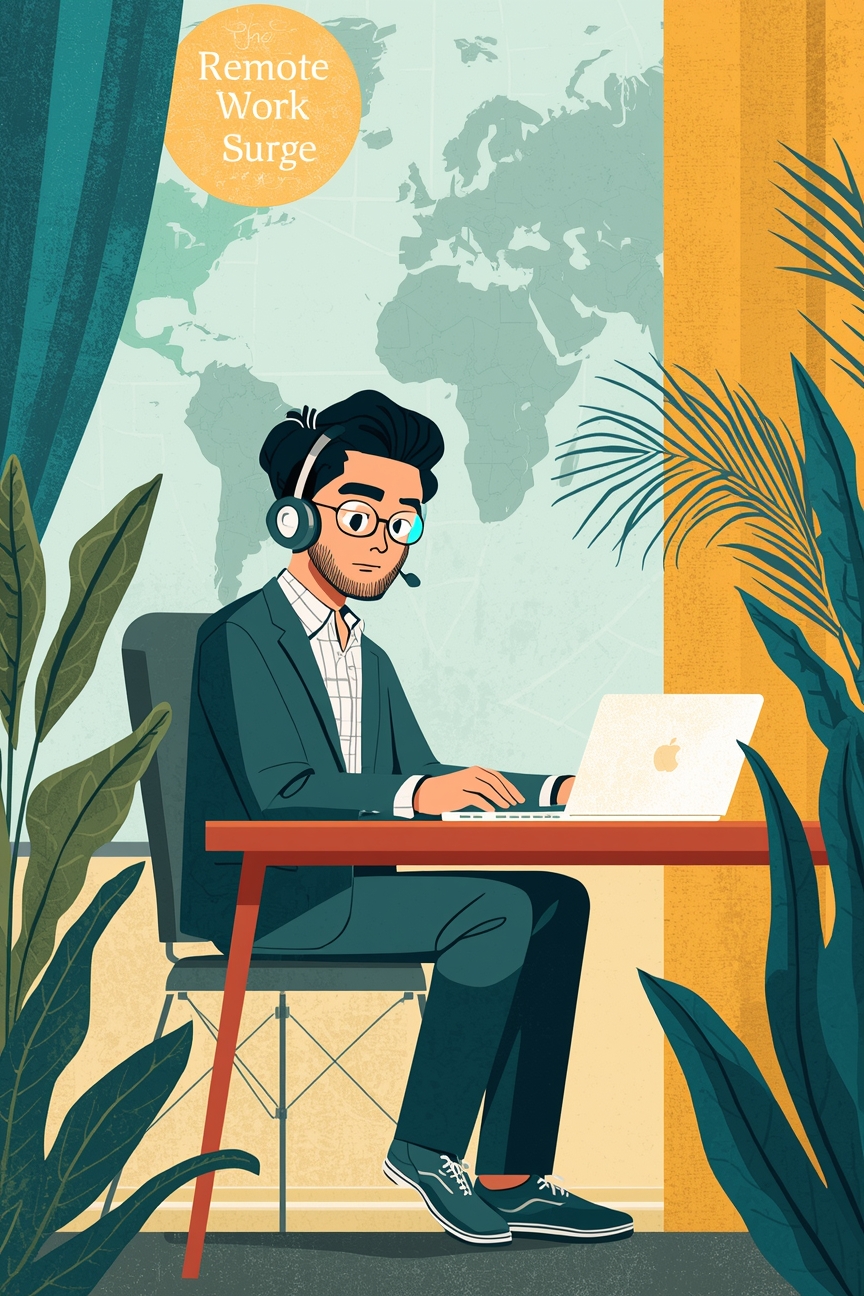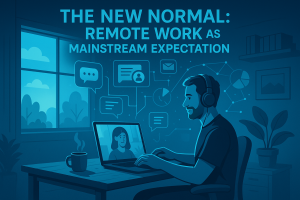The Remote Work Surge: Opportunity Meets Challenge

Remote Work

The Remote Work Surge: Opportunity Meets Challenge Remote work has gone from an occasional perk to a mainstream reality. Since the COVID-19 pandemic, many organizations adopted remote arrangements broadly, and while it opened up exciting opportunities—more flexibility, less commute, better autonomy—it also brought into sharp relief some mental health challenges. Recent studies show remote work can reduce psychological and physical stress responses, but full-remote (working from home five days a week) often increases “presenteeism” and feelings of being always on. Frontiers. Read More : 2024 Trends in Business Bureau Complaints and What Businesses Can Learn
Researchers have also found that remote work tends to improve job satisfaction largely because of flexibility and feeling more control over one’s daily schedule. But that comes with a caveat: isolation, blurring of boundaries between work and personal life, and lack of social contact have been repeatedly flagged as risks to mental well-being. ResearchGate+3SAGE Journals+3MDPI+3. Read More : Business Degree Jobs You Can Do Remotely: The Rise of Virtual Career Opportunities
The Mental Health Dimensions of Remote Work

One recent systematic review (“Teleworking Effects on Mental Health—A Systematic Review and Research Agenda”) examined many studies of teleworking (i.e. remote work) and found mixed impacts:
- On one hand, remote work can reduce stressors associated with commuting, rigid hours, and environmental distractions.
- On the other hand, more remote work correlates with increased depressive symptoms and anxiety, especially when working from home is mandatory rather than voluntary. MDPI+1
Another study in Frontiers in Public Health looked specifically at social relationships and mental health among workers who moved to work-from-home arrangements during the pandemic. It found that declines in interpersonal connection with friends or family, coupled with worsened depression severity, were strong predictors of negative remote work experiences. Having a dedicated workspace at home moderated some of the negative effects. Frontiers
Gender and role matter too. A review on teleworking from a gender perspective revealed that women often report higher anxiety or burnout under remote work models, possibly because of unequal domestic burdens, or less support in digital setups. New employees and those in high-interaction roles tend to struggle more. SAGE Journals+2Frontiers+2. Read More : Bridging Health and Wellness: The Impact of Fitness Tech and Mental Health Awareness on Financial Industries
Striking the Balance: Practices That Promote Mental Well-Being

Even though remote work has risks, recent research points to several strategies that can help individuals and organizations find balance, maintain mental health, and harness the positives. Read More :Affordable Business Cards Online: Quality Options for Small Businesses in 2024
1. Define Boundaries
One of the most common challenges in remote work is blurred lines between “work time” and “personal time.” Setting clear start and end times, physically separating workspace (if possible), and resisting the urge to check emails after hours help maintain psychological detachment from work. Studies show that better detachment boosts sleep quality and lowers stress. SAGE Journals+1
2. Prioritize Social Connection
Isolation is often cited as one of the biggest difficulties. Whether via virtual co-working spaces, regular check-ins by managers, informal social gatherings online, or “buddy” systems, maintaining human connection is crucial. The Frontiers study emphasized that negative changes in social relationships outside of work greatly impact mental health for remote workers. Frontiers
3. Flexible & Hybrid Models Over Full-Remote Only
Hybrid work (splitting time between home and office or other locations) appears to offer many of the mental health benefits of remote work (flexibility, reduced commuting) while mitigating some of its downsides (full isolation, presenteeism, reduced engagement). Research in the UK, for example, indicates hybrid workers report less burnout, better sleep, and healthier habits compared to those working fully remotely. The Guardian+2Frontiers+2
4. Ergonomics, Workspace, and Physical Health
Remote work that lacks proper ergonomic setups—poor chairs, inadequate lighting, having to work from bedrooms or dining rooms—can worsen physical discomfort, which in turn increases mental stress. Studies flag physical and psychological health being intertwined in remote settings: less physical activity, longer sitting times, and increased bodily aches all contribute to lower well-being. SAGE Journals
5. Organizational Support & Early Intervention
Organizations that invest in mental health resources, training, and early detection of stress or burnout can significantly improve remote work outcomes. For instance, new interventions using stress-detection tools and real-time support have shown promise in increasing well-being when implemented early. Transparent policies, manager training, promoting well-being culture, and normalizing mental health check-ins all help. arXiv+2PMC+2. Read More : Adapting to Remote Work: The Evolution of Hybrid Work Models and Fintech Solutions
Overcoming Common Pitfalls in Remote Work

Even with all good intentions, certain traps are easy to fall into. Here are a few common ones (with ideas to avoid them):
- “Always-on” culture: remote work sometimes creates pressure to be available constantly. Combat this by scheduling breaks, turning off notifications during off hours, and using “core hours” rather than flexible hours that stretch indefinitely.
- Loneliness & disconnection: mix solo remote work with social interaction—virtual or physical—and share feelings or struggles with peers.
- Lack of structure: set routines, plan your day, and make time for both tasks and rest. Use calendar blocks to protect “deep work” and “rest/leisure” time.
- Overworking: just because you’re at home doesn’t mean working more is better. Rest matters. Taking regular breaks, disconnecting at the end of the day, and ensuring vacation time are respected are key.







